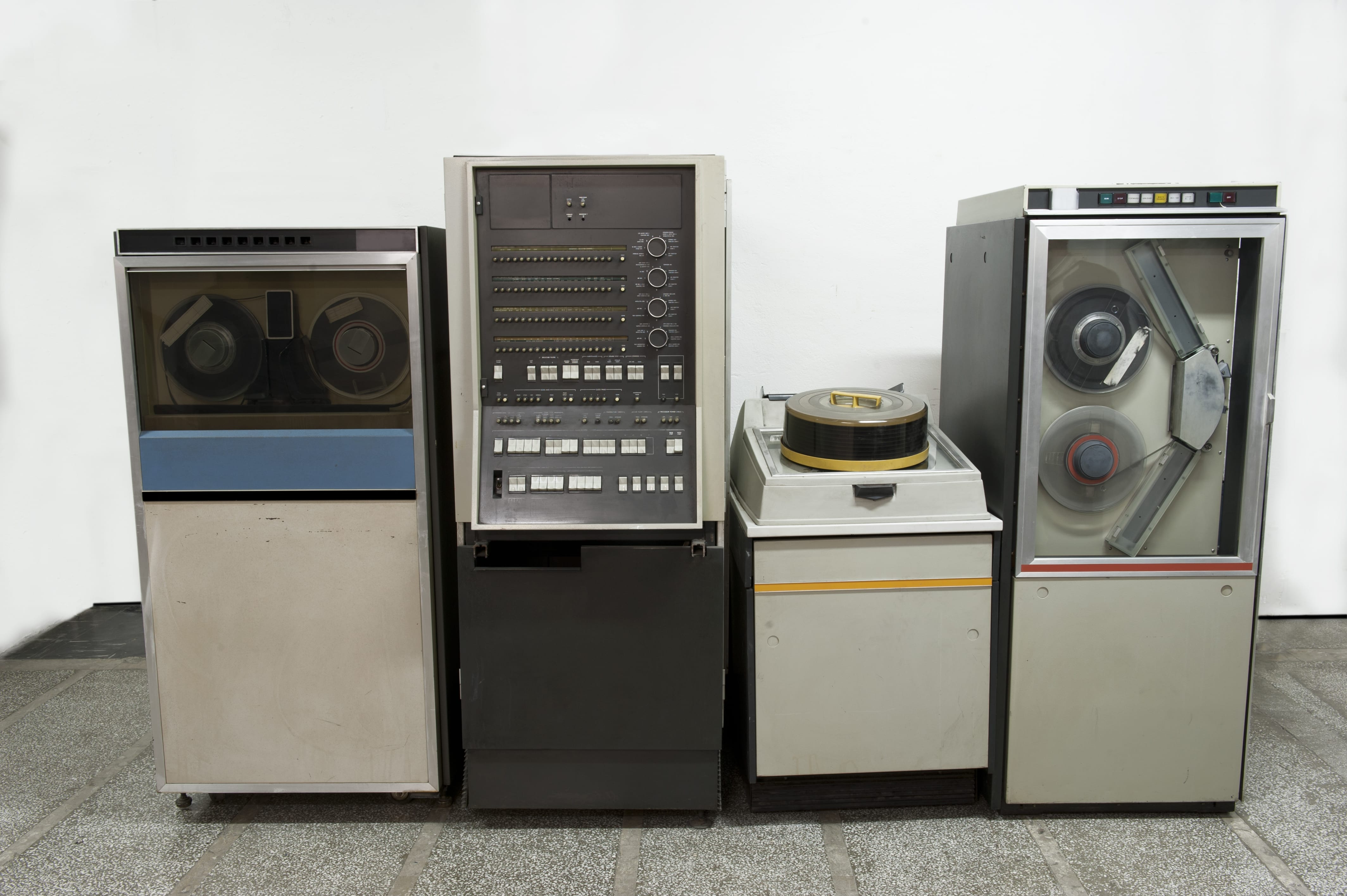A lifelong early adopter, Myron Weiner WG51 has implemented technology and followed its explosive growth since his time as a radar technician in World War II. Weiner attended Wharton shortly after the advent of ENIAC, the world’s first general-use computer, and beginning with his time as a professor at the University of Connecticut’s School of Social Work, he helped local and state governments and nonprofits adopt computer technology.
While attending Wharton in the early 1950s, my classes were a stone’s throw from ENIAC, but I only had a general understanding of what role computers would eventually play in our lives. Because of my Wharton experience, almost accidentally, I became one of the hundreds of thousands professionals who helped pioneer the use of computers and telecommunications.
Beginning with ENIAC, rapid advancements in every aspect of modern society led to a half century of harnessing computer and telecommunication technologies to shape the electronic world we now live in. The benefits are overwhelming—the “smartphone” we walk around with in our pockets is a computer and telecommunication device beyond the dreams and imagination of the early electronic pioneers. It has resulted in unbelievable capabilities.
In the early stages of the digital technology boom, a “Wild West” atmosphere ensued—lead by Silicon Valley entrepreneurs pursuing technology as a new business opportunity via a “free lunch” economy, open to anyone in the world. But the price for that “free lunch” was a “Peeping Tom” reality in which our personal data has become monetized, creating monopolies that control global technology use (known as FAANG: Facebook, Apple, Amazon, Netflix, Google).
This shift has in turn reshaped our economy to one where capital is no longer machinery that workers use to improve productivity and profits; instead, it’s personal data of people everywhere. Take for example Google or Facebook: Their investment in capital as tangible equipment is minimal and their dependence on humans—as workers and consumers who produce information (data) for them, is high. This shift complicates the relationship between capital and labor.
The time has come for the “surveillance capitalism” economic model in our electronic world to be rebalanced. A large part of the technologies driving today’s electronic services were created and paid for by all of us as taxpayers. The commodification of our personal data was not done with our knowing approval. Yet, for example, Facebook and Google have now become monopolies, receiving three out of every four dollars spent on digital ads in the U.S., which translates to billions of dollars annually.
As electronic pioneers, we had lofty goals to improve the world by harnessing the electronic for the benefit of all. In the 1970s and ‘80s, users were “computer phobic”—either afraid to use an electronic device or against turning our world into machine-like behavior, but we struggled to get computers and telecommunications devices into the hands of everyone because we thought it would strengthen democracy. We fought hard to create the opportunity for everyone to be users of computers to enhance creativity and innovation. We achieved that goal. But the unintended consequences of our efforts have led to a wide range of negative outcomes, namely these devices being weaponized and propagandized. We are not only combatting the black hats of our nation and the world who are out to capture our wallets and our minds, but are frequently under cyber-threat by hostile nations who already are shaping our political, social, economic systems for their own purposes. Moreover, most users today are electronically addicted to the point where the World Health Organization is considering identifying “Gaming Disorder” as a disease.
For each of us—professionally, academically, and personally—we need to begin reshaping our interactions with technology in the following ways:
- Reconceptualize the fundamental rules and principles of our electronic world.
- Recognize the benefits and perils of this technological age.
- Acquire knowledge and skills not only to exploit the benefits, but also to combat the potential harmful impacts of these technologies.
- Adopt a balanced way of harnessing tech that benefits all stakeholders, not just a limited segment of our nation and the world.
- Create new, optional business models for internet and telecommunication services beyond the “free lunch/Peeping Tom” model. This should include opportunities for consumers to share in the monetary value of their personal data along with better protection of their privacy.
A transition from the “Wild West” period of the electronic age is underway globally. Starting with the ENIAC, Penn has a historic track record in utilizing our knowledge, skills, values, and creativity to strive for an electronic world based on the motto engraved in our coins, E pluribus unum. Wharton graduates need to consider this a serious and achievable challenge for each and every one of us, now and for the next decade.


























